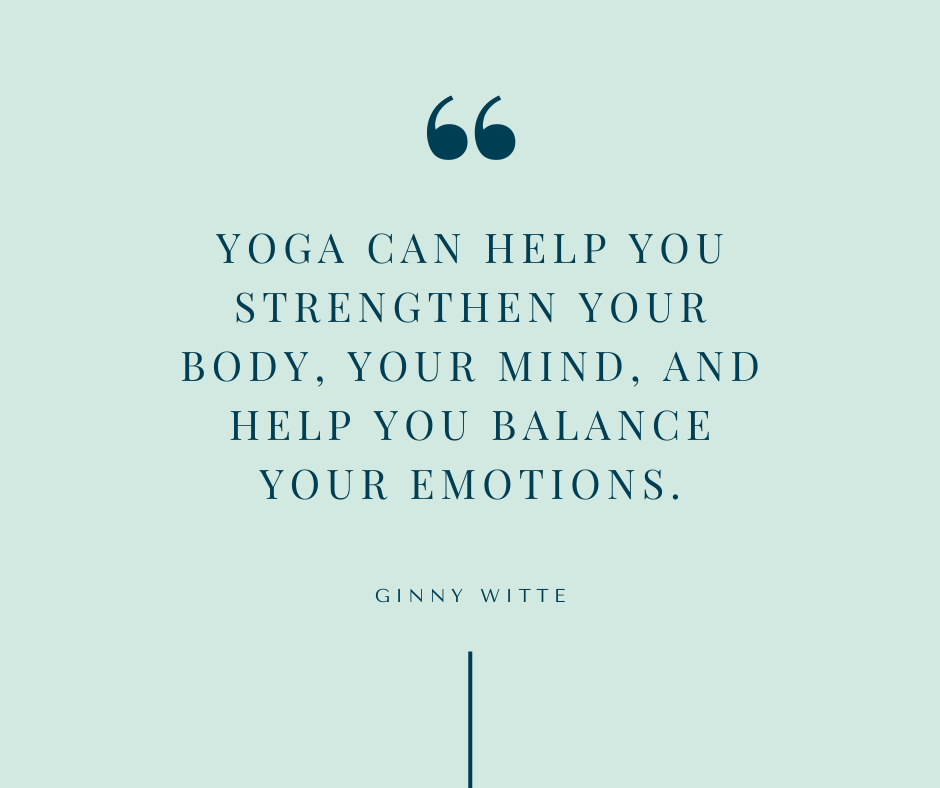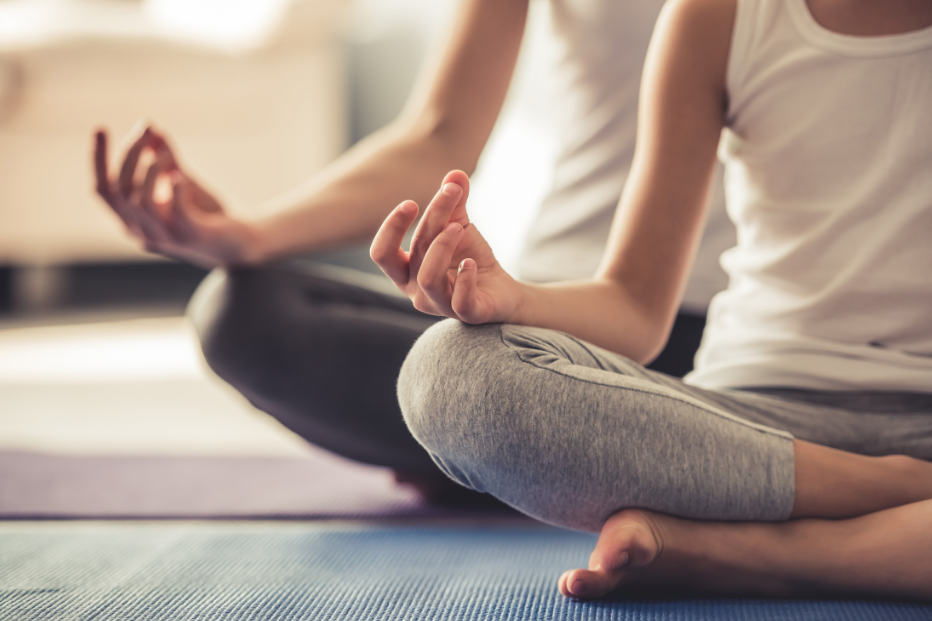
Ginny Witte, PhD
Trauma Informed Yoga
Trauma Informed Yoga
Yoga Benefits
My trauma informed yoga journey began with studying trauma. As I poured through research and healing practices, in nearly every direction I looked, yoga came up. With my desire to learn more, I began practicing yoga. Since I have this craving to learn more, I then became certified in teaching yoga. Now, I am a yoga instructor. Through yoga we teach you to use your body and breath to help you heal from stress and trauma.


Why Practice Yoga
While much of my focus with yoga relates to trauma, yoga has multiple benefits for every body, and every person! Practicing yoga can help you build strength, help improve bone health, reduce symptoms of arthritis, reduce back pain, improve your energy, help you sleep better, breathe better, and improve your mood. But how does yoga help those who suffer with trauma? Here are five ways. Let’s dive deeper into each benefit!
Yoga helps by working with the body
Trauma is not just a ‘head’ problem. Trauma lives in the body. In yoga we use breath practices to help you train your nervous system to calm down. When you move through the yoga postures you help move the trauma through the body. As a result you will feel more free and empowered to be you.
Yoga can energize you
Yoga can energize you. Because, sometimes we don’t need to calm down, we need to get going. There are many types of yoga. This gives you a variety of options to fit your needs and regulate your body. Yoga can help you regulate your nervous system to either energize you, or help you calm down). In the end you should feel energized but calm.
Yoga helps you manage stress and anxiety
The National Institute for Mental Health (NIMH, 2017) states nearly one in three adults experiences anxiety at some point in their life. Anxiety takes our worries to the future. Yoga trains the mind to be in the moment and helps you stay present. Your breath has a direct link to your nervous system. When you practice breathing you calm your nervous system, you calm your mind, and you keep your anxiety at bay. By moving through yoga postures, you also relax muscle tissue. A relaxed body supports a relaxed mind.
Yoga will help you improve posture and build strength
When your body is strong, your posture improves. When you feel strong you also feel empowered! And feeling empowered is a key principle in approaches to healing trauma. As a yoga practitioner, you are encouraged to make your time on the mat your own practice through modifying postures, opting out of postures that don’t feel comfortable, and by developing confidence and strength each time you are on the mat. As you practice yoga on a regular basis you release stiffness, improve balance, strength, and flexibility, and gradually improving your posture. Research shows that our posture can directly affect our mood and self confidence.

Connect with me to get started
My mission has always been to help you be a better you! Through learning, finding your passions, and meeting the challenges of life, you can be all you were meant to be! Start your journey today.
Yoga can help you develop self-compassion
Many people who suffer from trauma are focused on protecting themselves. Through yoga, you can learn ways to take care of yourself. A better you is a more balanced and productive you.
Testimonies
Resources
Nair, S., et al. (2015). Do slumped and upright postures affect stress responses? A randomized trial, Health Psychology, 34(6), 632-641. doi:10.1037/hea0000146
National Institute of Mental Health (2017). Any anxiety. Retrieved from https://www.nimh.nih.gov/
Wilson, V. E., & Peper, E. (2004). The effects of upright and slumped postures on the recall of positive and negative thoughts, Applied Psychophysiology and Biofeedback, 29(3), 189-195. doi: 10.1023/b:apbi.0000039057.
